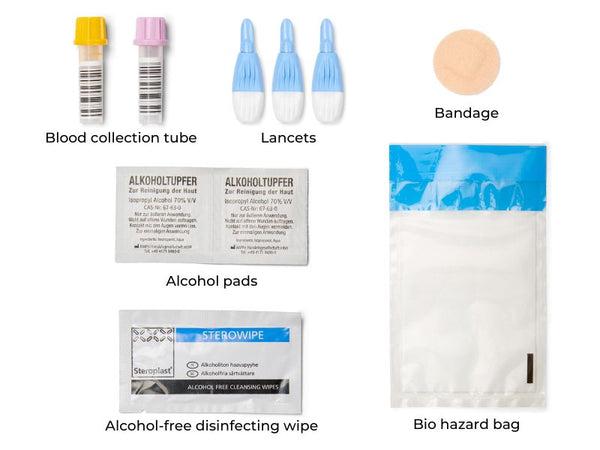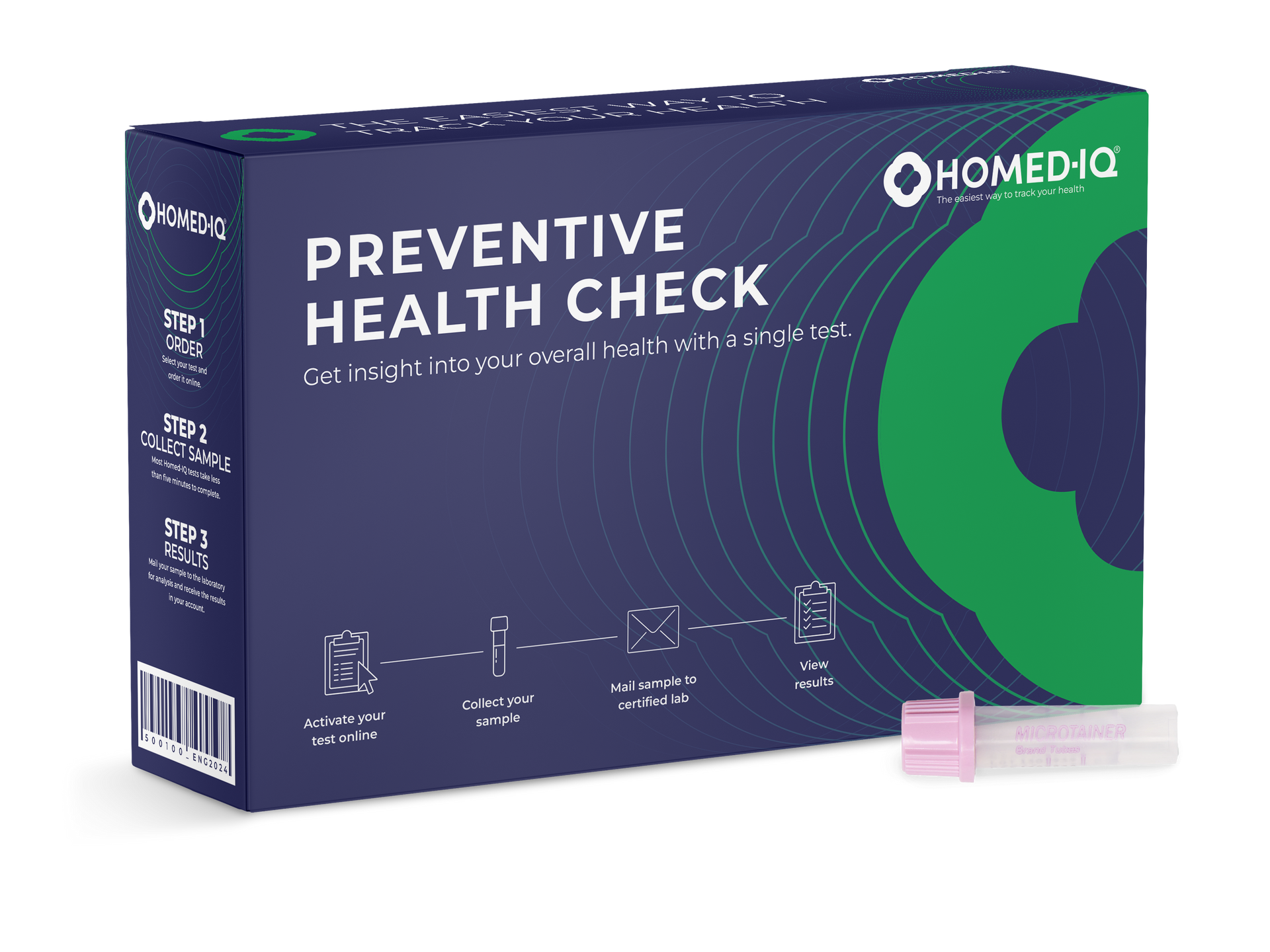Preventive Health Check
Regular price
€89,00
FREE SHIPPING
Check in on your health from the comfort of home. The Health Check measures key biomarkers for blood sugar, cholesterol, and vitamin levels. Knowledge of these markers can help you reduce your risk of disease and make changes where needed. Use this test as a check-up or as a starting point to further investigate certain health concerns.
Test mode:
Finger prick test
-2
€89,00
FAQs
Why are regular preventive health screening tests important?
How often should you do a general health check?
How can I use the results of this blood test?
Can I order this preventative health screening blood test in bulk for my employees?
Can I also buy tests for specific health issues?
How will the analysis of this blood test take place?
Does this blood test also check for celiac disease or food intolerances?
How accurate is this at home health test?
How does it work?
-
![Woman in professional cozy kitchen with Homed-IQ test kit]() 1
1Order your test
Fast and discrete letterbox delivery
-
![]() 2
2Activate & take your sample
Video instructions included
-
![]() 3
3Laboratory analysis
ISO - Certified lab network
-
![]() 4
4Receive your results
Easy access through mobile








